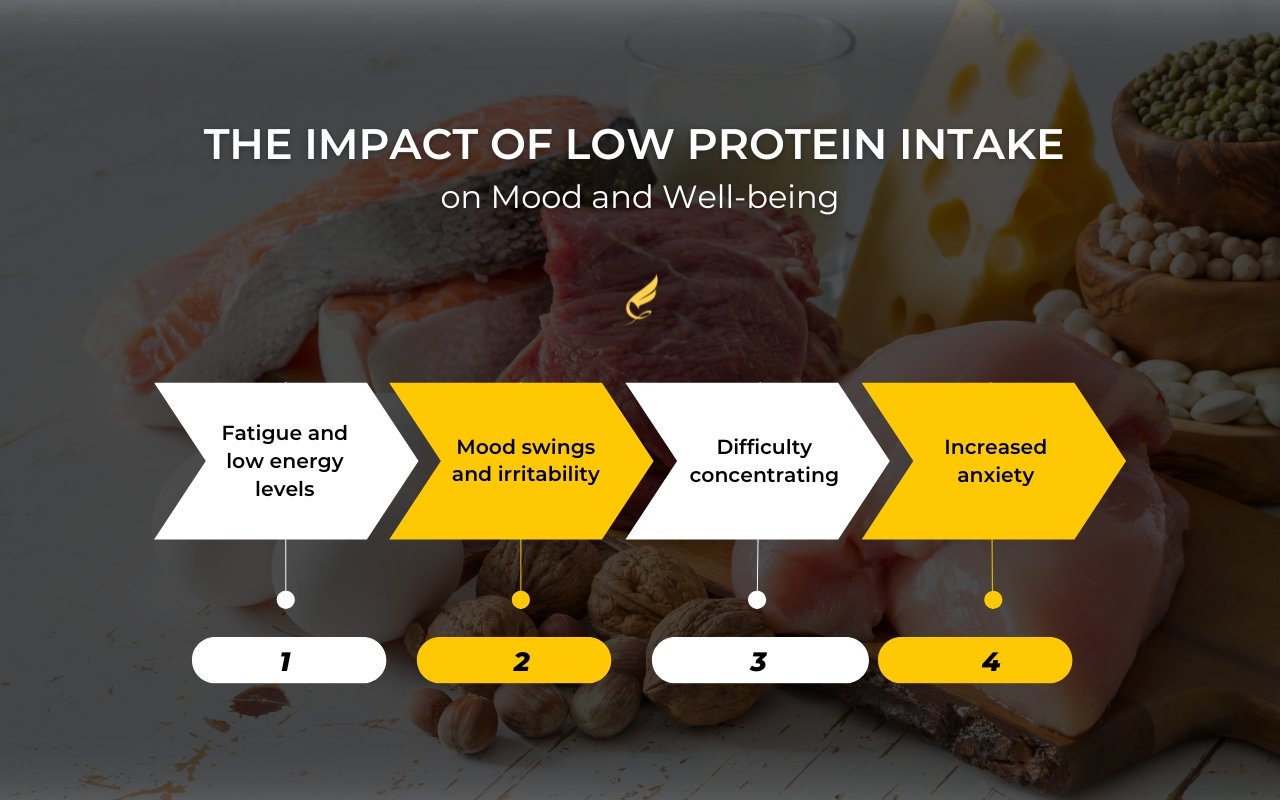The Overlooked Connection: Depression, Vitamin D, Protein, and Exercise in Women
Beyond the Blues: Could Lifestyle Factors Be Impacting Your Mental Health?
Depression is a complex mental health condition that affects millions of women worldwide. The World Health Organization recognizes depression as a leading cause of disability, impacting all facets of life. While therapy and medication are often essential components of treatment, emerging research suggests that lifestyle factors, including vitamin D and protein intake, as well as exercise habits, may play a significant role in mood regulation and overall mental well-being. This blog post explores the intricate connections between depression, vitamin D, protein, and exercise, specifically focusing on women.
Vitamin D Deficiency and Depression: Shedding Light on a Hidden Link
Vitamin D, often referred to as the "sunshine vitamin," is crucial for various bodily functions, including calcium absorption, bone health, and immune function. However, research increasingly points to its role in mental health, particularly in mood regulation. Studies have shown a strong correlation between vitamin D deficiency and an increased risk of depression in women.
This connection may be due to vitamin D's influence on the central nervous system and its impact on neurotrophic factors like brain-derived neurotrophic factor (BDNF) and nerve growth factor (NGF), which are essential for brain health and neuron function. Low vitamin D levels can disrupt the production and function of neurotransmitters, such as serotonin, which play a crucial role in mood regulation.
Learn more with our wellbeing guide!
Protein Power: The Impact of Low Protein Intake on Mood and Well-being
Protein is essential for building and repairing tissues, producing enzymes and hormones, and supporting a healthy immune system. However, its role in mental health is often overlooked. Adequate protein intake is crucial for the synthesis of neurotransmitters, including dopamine and norepinephrine, which are involved in mood, motivation, and focus.
Low protein intake can lead to:
Fatigue and low energy levels
Mood swings and irritability
Difficulty concentrating
Increased anxiety
These symptoms can exacerbate feelings of depression and make it more challenging to cope with daily stressors.
The Power of Movement: Resistance Training and Mental Resilience
Exercise, particularly resistance training, offers numerous benefits for both physical and mental health. Resistance training involves using weights, resistance bands, or bodyweight exercises to strengthen muscles and improve overall fitness. Studies, including randomized controlled trials, have shown that resistance training can significantly reduce symptoms of depression and anxiety in women. [cite: 4, 5]
The benefits of resistance training for mental health include:
Release of endorphins, which have mood-boosting effects
Improved self-esteem and body image
Increased feelings of accomplishment and control
Reduced stress and improved sleep quality
The Combined Impact: Low Vitamin D, Low Protein, and Lack of Exercise
When women experience a combination of low vitamin D, low protein intake, and a lack of resistance training, the negative effects on mental health can be compounded. This can lead to a vicious cycle of low energy, mood disturbances, and decreased motivation, making it even more challenging to adopt healthy lifestyle habits.
Addressing the Issue: Empowering Women
At Fortius Dubai, we recognize the importance of addressing these interconnected factors. During our assessments, we often observe that women with low lean muscle mass and high body fat also tend to have insufficient vitamin D and protein intake, along with a lack of regular exercise.
To help women optimize their health and well-being, we emphasize the importance of:
Vitamin D Optimization: Increase sun exposure (with proper precautions), consume vitamin D-rich foods, and consider vitamin D supplementation as advised by a healthcare professional.
Adequate Protein Intake: Include protein-rich foods in every meal and consider protein supplementation if dietary intake is insufficient.
Regular Resistance Training: Incorporate strength training exercises into your routine 2-3 times per week.
Conclusion
While therapy and medication play a crucial role in managing depression, lifestyle factors such as vitamin D and protein intake, along with regular resistance training, can significantly impact mood regulation and overall well-being. By addressing these factors, women can empower themselves to take control of their mental health and improve their quality of life.
Ready to take charge of your health and well-being?
Contact us today for a free consultation with our expert team. We'll help create a personalized plan, and guide you on your journey to a healthier, more vibrant you.
Discover More:
The Hidden Impact of Low Vitamin D and Low Protein on Women in Dubai
To find out more about our services, check out:
Learn more with the most comprehensive fitness and wellness blog in the Middle East:
#StayStrong
#BeFortius






